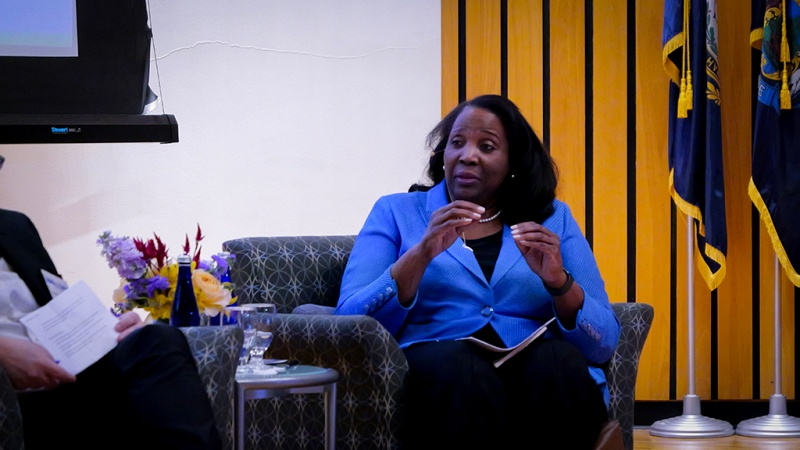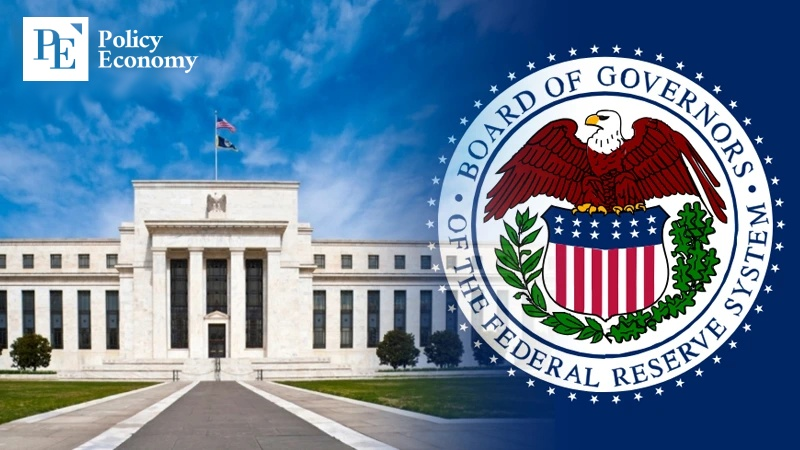Trump’s Firing of Fed Governor Cook Sparks Firestorm Over Central Bank Independence
Input
Modified
Two weeks after criminal charges, dismissal announced
Move seen as overt political interference, removing dissent
Raises broader concerns over global financial stability

President Donald Trump has abruptly dismissed Federal Reserve Governor Lisa Cook, a vocal opponent of rate cuts, deepening fears that the independence of the U.S. central bank is being compromised. By directly ousting a policy dissenter, Trump triggered swift condemnation from market participants and drew alarm from central bankers worldwide, who stressed that central bank autonomy is essential to price stability.
“Decision made after careful review”
On the 25th, Trump released on his Truth Social platform a letter informing Cook of her removal. Citing Article II of the U.S. Constitution and the 1913 Federal Reserve Act, the letter declared her immediate dismissal. Trump said that “the law provides for removal of Board members for cause” and that “after careful consideration, I have decided to remove Governor Cook.”
He justified the decision by pointing to Cook’s alleged ethical breaches and criminal indictment for abusing her position for personal financial gain. “Integrity and trust are indispensable in the Fed’s operations,” Trump wrote, charging that Cook’s actions had “seriously damaged public confidence.”
The firing stems from a complaint filed by Bill Pulte, head of the Federal Housing Finance Agency and a close Trump ally, who accused Cook of mortgage fraud. Pulte claimed she had declared homes in both Michigan and Georgia as her primary residence to secure preferential loans, falsifying bank and property records in the process. The Justice Department subsequently opened an investigation.
Markets now expect the balance within the Fed Board to tilt further toward rate-cut advocates. Cook, the first Black woman ever to serve as a Fed governor and an appointee of former President Joe Biden, was among the most prominent opponents of aggressive easing. Given Trump’s repeated public demands for lower rates, the move is widely seen as an attempt to exert direct pressure on Fed Chair Jerome Powell and other members of the Federal Open Market Committee (FOMC).

Fears of currency depreciation and surging prices
Critics argue that undermining central bank independence has often ended in economic disaster. Turkey offers a cautionary example: in 2020, the central bank raised its benchmark rate three times to 19 percent to contain inflation, only for President Recep Tayyip Erdogan—who insists “high interest is the root of all evil”—to sack Governor Naci Agbal after just four months.
Investor confidence collapsed. On the day of Agbal’s dismissal in March 2021, the lira plunged 17 percent. By year’s end, consumer prices were up 36.08 percent year-on-year, while rents in Istanbul surged from about $113 to $187 per month. Food and transport costs climbed 43.8 percent and 53.7 percent, respectively. Though Turkey began raising rates again in 2023, inflation remained stubbornly high, with CPI up 35.1 percent in June this year.
Argentina provides another precedent. In 2010, then-President Cristina Fernández de Kirchner sought to tap central bank reserves to service debt. When Governor Martín Redrado refused, citing statutory limits on using foreign currency holdings, he was dismissed.
That year, the government’s official inflation figure was 10.9 percent, but most analysts argued the data had been manipulated. Independent estimates put the rate as high as 27 percent. Authorities even fined private research institutes for publishing higher figures. Economists warn that heavy-handed interference risks currency depreciation and runaway inflation, underscoring why central bank independence is so critical.
A dangerous precedent?
Central bankers worldwide are now watching Washington with unease. If the Fed yields to political pressure, many fear it could set a troubling precedent for peers in Europe, Japan, and beyond. Speaking with Reuters at the Jackson Hole symposium, several governors said political encroachment undermines monetary authorities’ ability to fight inflation and threatens overall stability.
“If the Fed bends to political pressure, the standing of U.S. Treasuries—the backbone of the global financial system—will inevitably be weakened,” one official said, warning that investors may demand higher risk premiums, driving down bond prices and roiling markets. Some regulators in other countries have reportedly advised banks and lenders to reduce exposure to the U.S. dollar in anticipation of potential fallout.
European Central Bank President Christine Lagarde directly rebuked Trump in a Fox News interview, saying: “Central bank independence is essential. If governments interfere in rate-setting, the economy cannot function properly.” Drawing on her time as IMF chief, she warned that repeated political intrusion inevitably distorts financial systems. “To minimize market instability,” Lagarde stressed, “the independence of central banks must be preserved.”





















